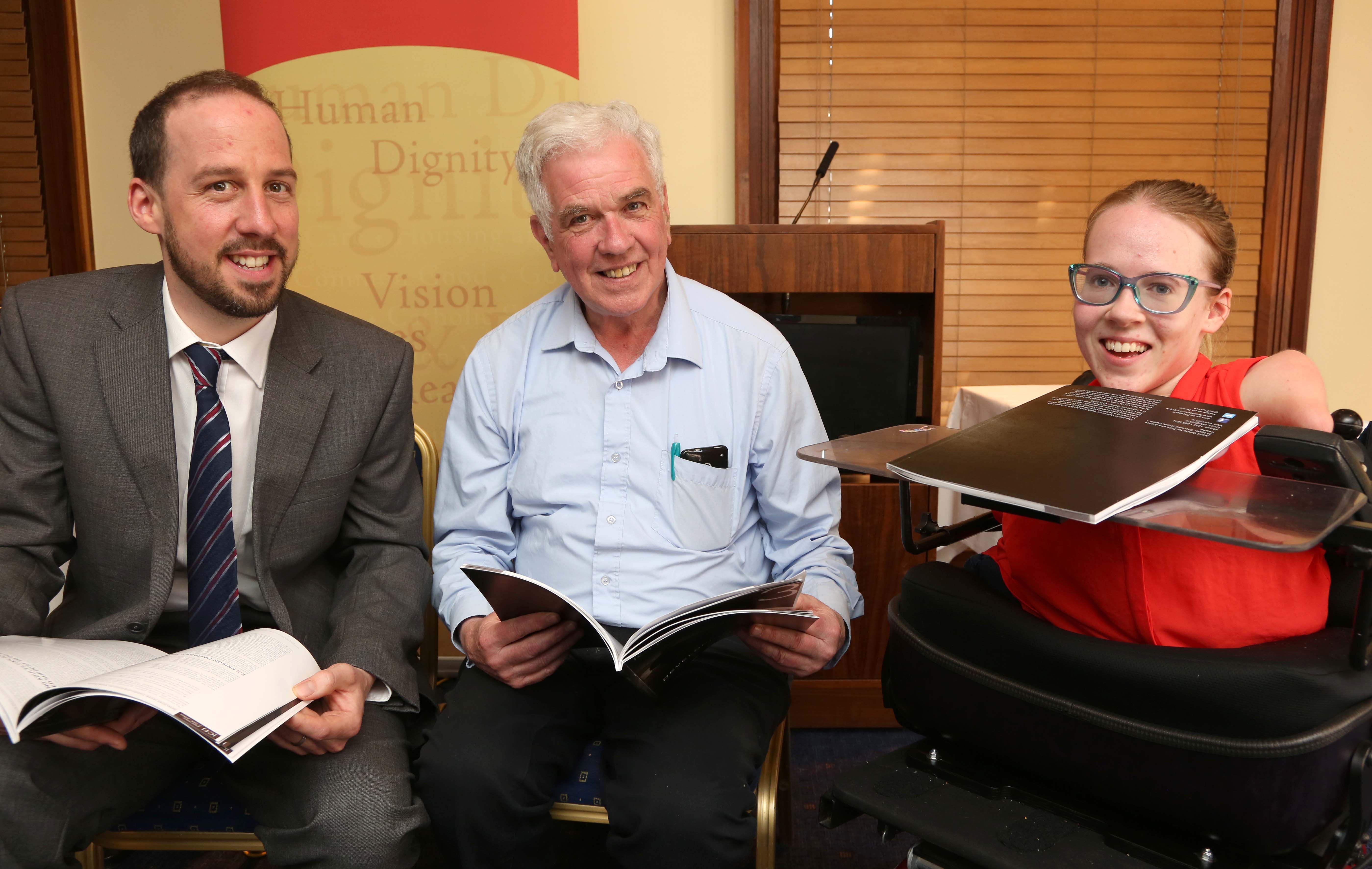The Jesuit Centre for Faith and Justice has called on the Government to end ‘severe confinement’ for young adults in prison. According to Eoin Carroll, Advocacy Officer in the Jesuit Centre, over 100 young adults (aged 18–24) are spending up to 23 hours a day in their cells out of fear for their own safety.
In their recent report entitled Developing Inside: Transforming Prison for Young Adults, the Centre recommends that Youth Justice, under the Department of Children and Youth Affairs, be assigned responsibility for 18–24 year olds in prison.
Speaking at the launch of the report, Father Peter McVerry, who visits Mountjoy and Wheatfield prisons each week, said:
“Far too many young people in prison spend almost all their time in prison locked up in their cells, out of fear for their own safety. The issue of safety, both for prisoners and staff, is a major concern … Imprisonment is inherently a negative experience. Learning from the decisions we make is a key dimension to a young person’s development. However, in prison all decisions are made for you by the prison authorities. If we are going to lock young people up, involving young people, as far as possible, in the decisions that affect their life in prison should be a priority. Most young people in prison have left school early, have no qualifications or skills, often poor literacy skills, no history of employment … Unfortunately, for many young people, they leave prison no more equipped for life than the day they entered prison.”
Eoin Carroll, outlining findings and recommendations from the report said:
“We need to reduce the number of young adults we send to prison. Representing 12 per cent of the adult population nationally, 18–24 year olds make up 24 per cent of all those sent to prison each year … What our report highlights as being particularly startling is the percentage of young adults on ‘extended lock up’, what we refer to as ‘severe confinement’. Thirty-one percent of adults on extended lock up times are aged 18–24. The most recent figures we have showed that seventeen young adults were locked in their cell for 23 hours each and every day.”
The Jesuit Centre for Faith and Justice is an agency of the Irish Jesuit Province. The Centre undertakes social analysis and reflection in relation to issues of social justice, including housing and homelessness, penal policy, environmental policy, health policy and values based economics For more information on the Jesuit Centre for Faith and Justice and to read the recent report visit www.jcfj.ie.
ENDS


